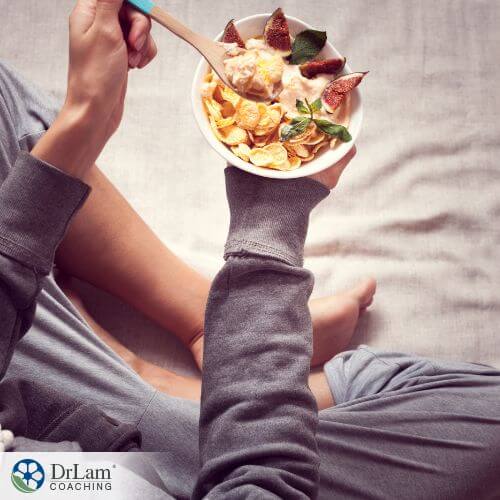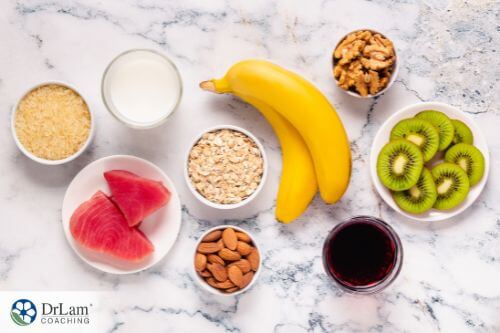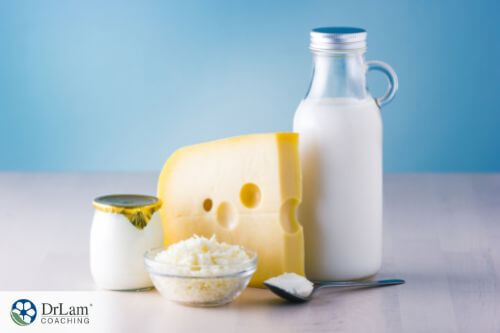 Do you often feel hunger pangs during the latter part of the evening? You also probably know that late-night snacking could lead to obesity, blood sugar issues, and even cardiometabolic conditions. Unless, of course, you purposely choose healthy bedtime snacks! Eating the right snacks can promote a better quality of sleep, help balance your blood sugar, and help you avoid adding unwanted weight.
Do you often feel hunger pangs during the latter part of the evening? You also probably know that late-night snacking could lead to obesity, blood sugar issues, and even cardiometabolic conditions. Unless, of course, you purposely choose healthy bedtime snacks! Eating the right snacks can promote a better quality of sleep, help balance your blood sugar, and help you avoid adding unwanted weight.
So, which foods should you avoid, and which fall under the category of healthy bedtime snacks?
Certain foods not only increase your risk of developing certain health issues, but they also interfere with your Neuroaffect Circuit. In so doing, they may have a negative influence on your ability to sleep and quality of sleep.
Your body needs enough quality sleep to recover from stress. Stress is a normal part of life and it's healthy in the right doses, but chronic or severe stress can interfere with your sleep. Stress increases production of the stress hormone, cortisol, in your adrenal glands to get you ready to fight or flee. But when this and other stress hormones are high, you may find it harder to sleep.
Besides seeing an increase in your stress hormone production, during stressful periods you may also experience a decline in serotonin and melatonin production. Serotonin is the precursor of melatonin, the hormone that induces sleep.
You may also experience an imbalance in your brain’s neurotransmitter function during times of stress. Neurotransmitters act as chemical messengers between the various parts of the brain’s Hypothalamic-Pituitary-Adrenal (HPA) axis, which is the starting point of your body’s NeurEndoMetabolic (NEM) stress response.
Thus, stress can cause havoc on your body’s circadian rhythm, the 24-hour cycle that determines your waking and sleeping patterns.
Some foods can promote the production of cortisol and lead to imbalances in hormones and neurotransmitter function, especially when consumed before bedtime. Others, however, may have a beneficial effect.
For some reason, many people experience food cravings later in the evening. And unfortunately, these cravings are often for unhealthy foods like carbohydrates, salty foods, and sugary foods. Research suggests this may be a throwback to prehistoric times when the body stored fat as a means of survival when food was scarce. But we do not need this extra fat these days, and we do not experience extended periods of food shortages. So, to satisfy these cravings, healthy bedtime snacks are a better option.
Generally, you should avoid foods high in carbs, sugar, caffeine, and fried foods, because they will spike your blood sugar, keep you up, or are hard to digest. Foods one should avoid as late-night snacks include:
Healthy bedtime snacks, however, contain compounds that can help enhance your sleep.
Magnesium may help with relaxation. This nutrient plays a significant role in the regulation of the neurotransmitters associated with sleep and melatonin. It also helps regulate and soothe your nervous system.
 Potassium plays a role in most of your body functions.
Potassium plays a role in most of your body functions.
In the brain, it plays a significant role in the sending of messages between individual cells and organ systems. Anxiety and sleep disorders are two symptoms of low potassium levels in your body.
High protein foods as a healthy bedtime snack may help you fall asleep easier and sleep better if your protein intake for the day was low. They also help stabilize your blood sugar and keep you feeling full through the night.
Melatonin can be found in both plants and animals. In humans, it is made in your brain’s pituitary gland at night. The hormone is associated with your body’s sleep-wake cycle.
Healthy bedtime snacks that contain tryptophan may improve sleep. This is because tryptophan, an amino acid, plays a role in serotonin and melatonin production.
Calcium is required for your body to produce melatonin from tryptophan and therefore helps promote sleep.
GABA is a neurotransmitter that helps to relax both mind and body. In so doing, it encourages sleep. People suffering from insomnia often have low GABA levels.
Literature indicates a vitamin B6 supplement may help you fall asleep quicker and enhances your sleep quality. There is a strong link between vitamin B6 deficiency, sleep issues, and infertility.
Vitamin B12 plays a role in melatonin production. Low vitamin B12 levels have been linked to disrupted sleeping patterns.
Literature suggests that vitamin C may help boost your sleeping experience. Furthermore, it may help address restless leg syndrome, a condition that causes disturbed sleep in many people, especially the elderly.
Many healthy bedtime snacks contain one or more of the nutrients described above. Including them in your late-night-snacking regimen may help you fall asleep faster while improving your overall quality of sleep. Some of these snacks include:
Several fruits have compounds that may promote better sleep.

When considering milk products as healthy late-night snacks, use low-fat milk and unsweetened yogurt. You could also use milk or yogurt in a late-night smoothie with some of the fruits mentioned.
Warm cereals are not just a terrific way to start the day. You can enjoy them in the evenings as well. Oatmeal, for example, has high fiber content and is a natural source of melatonin.
Other good whole grain choices include barley, oats, and rice. For example, you could try whole-wheat crackers with cheese, sliced fruit, or nuts for a healthy late-night snack.
Many foods qualify as healthy late night snacks. They take care of hunger pains before bedtime but can also help improve your quality of sleep.
If you have hunger pangs before bedtime, here are a few snack ideas:
If you would like to know more about different healthy bedtime snacks and how different foods can help balance your circadian rhythm, the team at Dr. Lam Coaching can help. We offer a free** no-obligation phone consultation at +1 (626) 571-1234 where we will privately discuss your concerns and options. Alternatively, please send us a question through our Ask The Doctor system by clicking here.
Healthy midnight snacks provide adrenal support indirectly. They may help improve nutrition, hormone production, and boost your sleep quality. They are packed with nutrients like protein, fiber, magnesium, calcium, vitamin C, B vitamins, and amino acids that help your body rest and repair. This is just what your body needs if it struggles with adrenal fatigue.
